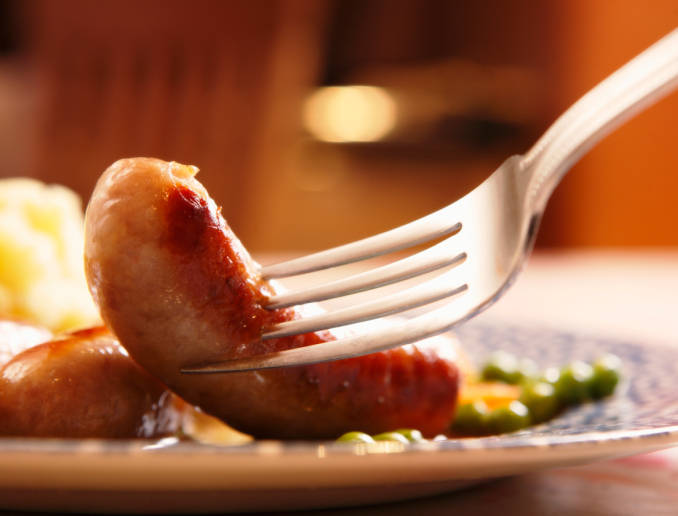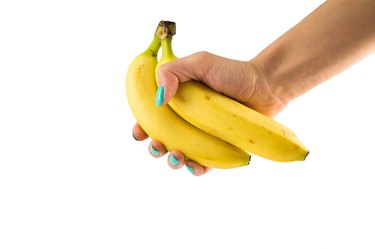Cajun andouille sausages in Louisiana, chorizo in Spain, and bratwurst in Germany are just a few of the famous sausages from around the world. Even though sausages can be made with a lot of different types of meat, they are usually made from ground meat mixed with fat and spices. This makes them ideal for people following low-carbohydrate diets and easy to incorporate into many meals.
Yes, you should be able to include sausage on your low-carb diet. But be sure to read the product label to find varieties with the least number of carbs.
Sausages are a beloved breakfast food for many, but are they a smart choice if you’re trying to lose weight? Beef sausages in particular tend to be high in calories and fat But does that mean you have to say goodbye to sausage sandwiches and breakfast burritos for good?
In this article, we’ll take a close look at how beef sausage stacks up for weight loss You may be surprised to learn that not all sausages are created equal. With some savvy shopping and preparation tips, enjoying the flavor of sausage may still be possible on a diet
Nutrition Profile of Beef Sausage
To determine if a food is optimal for weight loss, we have to look at its calorie, protein, carbohydrate and fat content Here is the general nutrition profile for beef sausages
-
Calories: Beef sausages contain around 200-300 calories per 2-3 ounce serving. This is similar to other processed meats like bacon or ham.
-
Fat: The fat content of beef sausage can vary widely, but most contain around 20-35% fat. Much of this fat is saturated.
-
Protein: A 2-3 ounce serving of beef sausage provides around 15-20 grams of protein.
-
Carbs: Beef sausages contain minimal carbs, around 1-2 grams per serving.
As you can see, beef sausages are very high in calories and fat for their serving size. They can easily account for over half of your recommended daily saturated fat intake. For this reason, they aren’t an optimal choice for weight loss.
Health Drawbacks of Processed Meats
In addition to being high in fat and calories, there are other health concerns with frequent processed meat consumption:
-
Increased cancer risk – A 2021 study found a 13% increased risk of colorectal cancer per 50 grams of processed meat eaten daily.
-
Higher heart disease risk – Multiple studies link processed red meat intake with an increased risk of heart disease and stroke.
-
Higher sodium – Most sausages contain 500+ mg of sodium per serving, which can increase blood pressure.
-
Inflammatory effects – Compounds formed during processing may cause inflammation, especially in those with diabetes or heart disease.
For optimal health and weight loss, moderation is key when it comes to processed meats like sausage.
Better Breakfast Meat Options
If you’re looking for a lower-calorie breakfast meat, here are some healthier sausage alternatives:
-
Turkey sausage – Look for lean turkey sausage with minimal added fat. Compare nutrition labels, as some turkey sausages are similar in fat to beef.
-
Chicken sausage – Go for grilled chicken sausage rather than fried. Try flavorful options like apple chicken sausage.
-
Vegetarian sausage – Try soy-based or bean-based vegetarian sausages to slash fat and calories. They can pack 10 grams of protein for just 50-70 calories per link.
-
Canadian bacon – A leaner pork option, Canadian bacon has about 40 calories and 5 grams of protein per slice.
-
Eggs – A superfood, eggs provide satiating protein and nutrients. An egg has about 70 calories and 6 grams of protein.
Tips for Enjoying Sausage on a Diet
While sausage may not be the optimal choice for every day, you can still enjoy it on occasion while losing weight. Here are some tips:
-
Choose chicken, turkey or vegetarian sausages more often than beef.
-
Compare nutrition labels and choose low-fat, uncured sausages when possible.
-
Limit portions to 1-2 small links rather than a whole sausage patty.
-
Avoid frying sausages. Opt for grilling, baking in the oven or pan-frying with minimal oil instead.
-
Load up your plate with veggies like bell peppers, onions, spinach and tomatoes.
-
Skip fatty additions like cheese, mayo or bacon. Stick to mustard, salsa or hot sauce for flavor.
-
Make sausage an occasional treat or side rather than the main breakfast event.
The Bottom Line
Beef sausages tend to be high in saturated fat and sodium, which isn’t ideal for weight loss or health. From increasing cancer risks to triggering inflammation, there are good reasons to limit processed meat intake.
However, with some simple swaps and preparation tips, you can still enjoy the savory flavor on occasion. Opt for leaner chicken or turkey sausages, load your plate with veggies and practice portion control. This allows you to keep sausage as an occasional treat while sticking to your healthy diet overall.

Sausages Around the World
A variety of sausages are commonly consumed worldwide. Even hot dogs are technically considered a type of sausage. The primary ingredient in most sausages is ground or processed meat, though vegan and vegetarian sausages exist too. Some examples of sausages include:



- Bloedworst is a Belgian and Dutch sausage that is mostly made from blood.
- Bratwurst: a German sausage usually made from pork or beef
- Chipolata: a thin sausage often served as a breakfast food
- Chorizo: a Spanish pork sausage known for its red color
- Frankfurters (or Vienna sausage)
- People in the UK love haggis, a sausage made from sheep’s intestines.
- Salami: fermented, air-dried beef or pork sausage
- Saucisson is a French dry-cured sausage that you can usually find.
- It’s a Lithuanian sausage made of ground meat and bacon in a pig’s stomach.
Sausages can be made using just about any type of meat or meat product. Along with these ingredients, sausages traditionally contain herbs and vegetables, like thyme, rosemary, oregano, garlic and onion. Theyre also typically high in fat, which keeps them moist as you cook them in their casings. Sausages often contain binders as well.



Sausages can be made out of essentially any protein. The Food and Agriculture Organization of the United Nations says that the main things that are used to make sausages are beef, pork, and veal. However, poultry, mutton and other meats, such as organ meats, are also used. Sausage is even made from game animals, like deer.
The amount of meat in your sausage depends on its type, but many are about 75 percent meat. The remainder should be fat and other ingredients, like eggs, binders and spices. This balance helps to create a moist and flavorful sausage. However, these ingredients vary widely, and the United States Department of Agriculture regulates sausage contents based on their labels. For instance:
- “Fresh Pork Sausages” can only have pork in them, and they can’t have more than 50 percent fat.
- “Fresh Beef Sausages” can only have beef in them, and the fat content can’t be more than 30%.
- Any kind of meat or meat product can be used to make “breakfast sausages,” but the fat content can’t be more than 50%.
- Any kind of meat can be used to make “Italian Sausage Products,” but the fat content can’t be more than 35%. They can also have different kinds of extra ingredients, like vegetables and spices.
This means that, on average, your beef sausage must have at least 70% meat and your pork sausage must have at least 50% meat. Because meat and fat are the two main things that go into sausages, there aren’t many carbs in them.
Any carbs in sausages made from meat products come from additional ingredients, like spices, binders and produce. While a bit of seasoning is unlikely to increase overall carb content, many sausages have small amounts of natural flavorings, like fruits, vegetables and even cheese. This can increase their carb content, but fortunately not by much: A pork, beef and cheddar cheese sausage still has only 2.1 grams of carbohydrates per 100 grams.
The main factor likely to increase the carbs in sausages is the use of binders. Binders give sausages their consistency and prevent them from becoming crumbly. Binders in homemade sausages are often breadcrumbs — obviously, a major source of carbs. But they might also have things like corn syrup, soy, vital wheat gluten, lentil flour, potato flour, or even corn syrup.
Whether or not these ingredients impact the carbohydrate content of your sausages depends entirely on the ingredient. Vital wheat gluten is mainly protein, for instance, and could be considered a nutritious, low-carb binder. In contrast, light corn syrup has virtually no nutrients and is high in carbohydrates, with 16.9 grams of carbohydrates per tablespoon.
Even though sausages are usually thought of as low-carb foods, these ingredients mean that you might want to be careful about adding them to your low-carb diet. If you make your own sausages at home, though, you can skip these ingredients and make sausages with the right amounts of protein, fat, and carbs for you.
Low-Carb Diets and Sausages
Low-carbohydrate diets often mandate the consumption of specific ratios of foods. Keto diet rules typically ask people to consume no more than 20 grams of carbohydrates per day. Instead of carbohydrates, people on ketogenic diets primarily consume fat, which makes up 70 to 80 percent of their total diet, with the rest coming from protein.
It might sound easy to eat a lot of fat at first, but it can be hard if you don’t have many carbs to choose from. However, since you can eat more protein than carbs, one way to help your diet is to eat more high-fat meats.
Sausages, which can have an equal amount of fat and protein, are great for low-carb and ketogenic diets. The downside to high-fat meat products is that theyre also rich in saturated fat.
Health Benefits of Sausages
FAQ
Can you eat beef sausage on a diet?
What is the healthiest sausage for weight loss?
Can you eat sausages when trying to lose weight?
Are beef sausages high in calories?
Are sausage alternatives good for weight loss?
In conclusion, lean meats, poultry, and plant-based protein sources can serve as effective sausage alternatives for weight loss. Don’t be afraid to get creative with seasonings and spices to recreate the taste of sausages while enjoying the benefits of more nutritious options.
Is sausage casing healthier option to eat?
Cellulose casings and some natural casings are perfectly fine to eat. Sausage casings are used to hold and shape filling inside so that it can be cooked. There are natural sausage casings and synthetic varieties, and most of them are edible. The healthiest way to cook them is by boiling or baking. Sausages provide high levels of vitamin B12 and iron, both of which are essential for healthy red blood cells and hemoglobin production.
Are Vegetarian sausages good for weight loss?
However, sodium content can still be a concern, so it’s crucial to read labels and opt for lower-sodium varieties. Vegetarian sausages, made from plant-based ingredients like soy, peas, or wheat protein, offer a meat-free alternative with a nutritional profile that often supports weight loss.
Is pork sausage good for weight loss?
Pork sausage is the most common type, and as previously mentioned, it typically contains a high amount of calories, fat, and sodium. Although it provides protein, vitamins, and minerals, its nutritional profile might not be the best choice for those aiming to lose weight.
